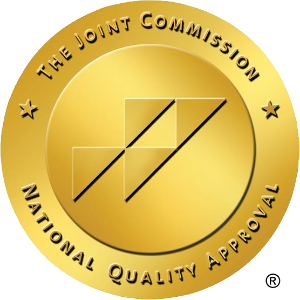How do you define substance abuse, and what treatment options work best? These are serious questions when thinking about a getting the proper care for drug or alcohol abuse, and the information can be confusing. From residential substance abuse treatment to outpatient programs, you need to understand what types of treatment options exist, how they differ, and which ones will provide the greatest benefit to those in your life who suffer from substance abuse.
A Few Facts About Treatment For Substance Abuse
In 2013, nearly 1.5 million people sought treatment for substance abuse, which includes alcohol abuse, through inpatient, outpatient, and residential treatment programs. Specifically, 107,727 individuals received treatment in residential care settings, reports Table 6.25a via the Substance Abuse and Mental Health Services Administration. Unfortunately, many of those with substance abuse problems do not understand the differences between inpatient treatment and residential substance abuse treatment. Although similar, residential treatment is not the same as inpatient treatment, and those with substance abuse problems need to know a few things about residential drug treatment programs.
Inpatient Treatment Versus Residential Treatment
Inpatient treatment is typically used to provide immediate intervention for those with substance abuse issues who are currently in crisis or in need of detox. Inpatient hospitalization may last between 24 hours and several weeks, depending on the severity of the substance abuse disorder.
PLEASE NOTE:
If a person with an addiction is expressing or experiencing suicidal thoughts, psychotic symptoms, such as hallucinations, psychosis, delusions, or extreme aggression, inpatient hospitalization is often required immediately. In some cases, the criminal justice system may require a person to go through inpatient hospitalization.
During detox at an inpatient facility, an individual is able to begin taking anti-addiction medications, such as naltrexone, methadone, buprenorphine, or acamprosate, to lessen the physiological and psychological dependence on the substance. Some inpatient facilities may impose strict limitations on visitors and personal belongings, which serves to create a highly-structured therapeutic milieu.
When vital signs have stabilized, provided the person is not experiencing other severe mental health issues, he or she may be released from an inpatient facility to an outpatient program or one of the available residential drug treatment programs.
Defining Residential Treatment
Residential treatment may actually be considered a type of inpatient treatment. However, residential treatment may last from several weeks to 12 months. According to the National Institute on Drug Abuse (NIDA), residential treatment centers focus on creating a drug-free, crime-free environment for those in recovery. The limitations in a residential treatment facility may be lesser than during inpatient hospitalization. However, some limitations may include limitations on belongings, the imposition of a curfew, recurrent, required group therapy sessions, and continuation of psychotherapy and medication treatment of addiction.
One of the dominant types of residential treatment programs remains therapeutic communities, which historically forbade the use of medications to treat addiction. However, most modern therapeutic communities take a more comprehensive approach to treatment, reports the NIDA, which includes the use of medications, behavioral therapies, and continuing education about addiction.
Some short-term residential treatment settings may function similar to inpatient hospitalization. These facilities may provide medically supervised detox and intense counseling sessions. However, short-term residential treatment facilities operate with the goal of helping a person transition into a longer-term residential solution.
Another type of residential treatment, recovery housing, provides short-term housing for those coming out of inpatient or extended-stay residential treatment programs. Since most residential treatment programs have lengthy stay requirements, those graduating from such programs may experience difficulties in finding a permanent home, managing finances, or finding a job. Recovery housing is comparable to a case manager; it hopes to encourage independence and sobriety.
Outpatient Treatment as Part of Residential Treatment
Some residential treatment centers may offer outpatient substance abuse services as well. However, those in residential treatment centers may continue to see counselors, psychiatrists, and other addiction specialists outside of the facility on an outpatient basis. In some cases, addiction and mental health professionals may visit the residential facility to make these outpatient services more accessible.
While residential treatment sounds more extreme than inpatient treatment, it simply refers to an extended substance abuse treatment program. Fortunately, residential treatment programs focus more on providing a safe, drug-free environment, and those in residential treatment programs often have a higher chance of achieving and maintaining sobriety.
Next Level Recovery is a leading addiction treatment provider. Our treatment programs are evidence-based and customized to the individual needs of those involved with addiction. We encourage our clients to participate in real world activities, such as work and educational opportunities, while they are in our program. For more information on our programs, call us today at (888) 759-5846.




